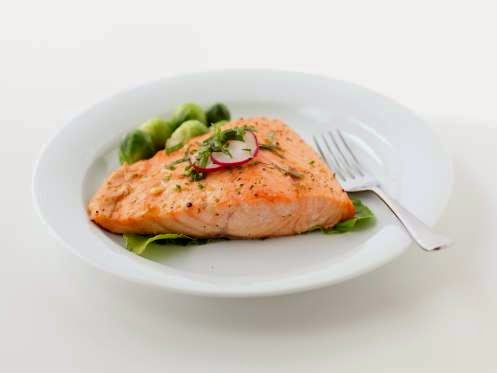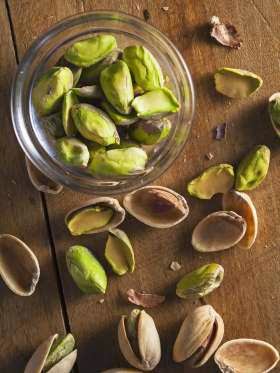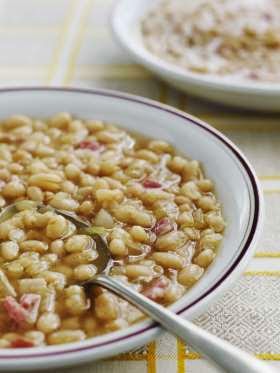Tuesday, 11 November 2014
Sunday, 9 November 2014
This winter, love your lips!
These
are the first and foremost to be affected as soon as the first winter
breeze arrives– yes, our lips are the most tender and delicate part that
need care in this harsh season of chill. Panic not, as Permanent Makeup
expert and Executive Director of ALPS Beauty Clinics, Ms Gunjan Gaur, shares some super useful tips as well as home remedies for your pout to be as fresh and calm as the winter season itself!
Say No:
To take proper care of lips, it is important to avoid certain things like licking our lips in order to keep them moisturized, which is not true and even dries them further. Instead, using a lip-balm on regular intervals is rather recommended to maintain well-hydrated pout. One should also never scrub her lips while scrubbing the face as it can cause serious harm to the delicate skin of the lips. Also, during winter season avoid very matte lipsticks as they can make your lips appear chapped and lifeless. Go for glosses to complete your look.
Lip-Pack:
A simple remedy for dry lips can be done by making paste of rose petals with honey and applying it on the pout. Keep it for few minutes and wash off before it dries. Honey will hydrate and nourish your lips while rose petals will infuse a rosy blush on them.
Navel Drop!
One can also take care of her lips without touching them! Yes, putting a drop of desi ghee or sarso oil for an overnight can help in bringing back the luster of your pout in no time.
Infant Care:
For your little kids, you may try cleaning their lips with kalawa/molli available in your pooja ghar. This will make their lips naturally pink and beautiful for years to come.
Night Care:
After removing your lip color and before hitting the bed in the night, try massaging your lips with fresh malai. This will not only soothe the chapped lips but will nourish them from within during an overnight’s time. And the next morning you will be ready with winter-proof, rosy lips!
Say No:
To take proper care of lips, it is important to avoid certain things like licking our lips in order to keep them moisturized, which is not true and even dries them further. Instead, using a lip-balm on regular intervals is rather recommended to maintain well-hydrated pout. One should also never scrub her lips while scrubbing the face as it can cause serious harm to the delicate skin of the lips. Also, during winter season avoid very matte lipsticks as they can make your lips appear chapped and lifeless. Go for glosses to complete your look.
Lip-Pack:
A simple remedy for dry lips can be done by making paste of rose petals with honey and applying it on the pout. Keep it for few minutes and wash off before it dries. Honey will hydrate and nourish your lips while rose petals will infuse a rosy blush on them.
One can also take care of her lips without touching them! Yes, putting a drop of desi ghee or sarso oil for an overnight can help in bringing back the luster of your pout in no time.
Infant Care:
For your little kids, you may try cleaning their lips with kalawa/molli available in your pooja ghar. This will make their lips naturally pink and beautiful for years to come.
Night Care:
After removing your lip color and before hitting the bed in the night, try massaging your lips with fresh malai. This will not only soothe the chapped lips but will nourish them from within during an overnight’s time. And the next morning you will be ready with winter-proof, rosy lips!
Saturday, 8 November 2014
Healthy living: 5 essential foods for working women
Are you a working woman? Then you must be spending most of your time
handling work, family, kids, travelling, meeting deadlines and what not.
The nutritional requirements of a women are different from a men as
they have a double work schedule. So eating well is very important to
avoid illnesses.
According to a study conducted by WHO, nearly 1.62 billion people affected by anemia are women and young children.Women especially are more likely to suffer from the condition.
So, in order to stay fit and manage all your responsibilities well, dear women, taking care of your health comes first. Here is what you should eat:
-Spinach: It is an excellent source of antioxidants, vitamins and dietary fibres which help fight anaemia. Also green leafy vegetables like broccoli, spinach, lettuce, salad leaves act as great antioxidants and are a good source of Vitamin C that prevents fine lines. Not only do they help keep the body weight under control but also help fight toxins and keeps all kind of diseases at bay.
-Eggs: Undoubtedly, eggs are the best
source of protein. The egg white is a rich source of riboflavin or
Vitamin B2 which is vital for for normal cell functioning, growth and
energy production.
-Nuts: They are encumbered with essential nutrients, vitamins, minerals, fatty acids and dietary fibres which are necessary for a healthy mind and body. Eating a handful of nuts every day can reduce the risk of heart diseases and cancer.
-Fatty fish: Believe it or not but eating at least one portion of oily fish such as salmon, trout and mackerel once a week can help cure anemia.
-Water: Yes, and last but certainly not the least, drinking ample amount of water is a must. It is advisable to consume at least 8 glasses of water to keep diseases at bay.
According to a study conducted by WHO, nearly 1.62 billion people affected by anemia are women and young children.Women especially are more likely to suffer from the condition.
So, in order to stay fit and manage all your responsibilities well, dear women, taking care of your health comes first. Here is what you should eat:
-Spinach: It is an excellent source of antioxidants, vitamins and dietary fibres which help fight anaemia. Also green leafy vegetables like broccoli, spinach, lettuce, salad leaves act as great antioxidants and are a good source of Vitamin C that prevents fine lines. Not only do they help keep the body weight under control but also help fight toxins and keeps all kind of diseases at bay.
-Nuts: They are encumbered with essential nutrients, vitamins, minerals, fatty acids and dietary fibres which are necessary for a healthy mind and body. Eating a handful of nuts every day can reduce the risk of heart diseases and cancer.
-Fatty fish: Believe it or not but eating at least one portion of oily fish such as salmon, trout and mackerel once a week can help cure anemia.
-Water: Yes, and last but certainly not the least, drinking ample amount of water is a must. It is advisable to consume at least 8 glasses of water to keep diseases at bay.
Thursday, 6 November 2014
8 Foods That Relieve Stress
Orange juice
When our worrisome thoughts go into
overdrive, the body’s natural response is to release stress-fighting
hormones such as cortisol—and elevated levels of cortisol can affect
your mood as well as your weight. “It may increase fat storage,
especially in your belly,” says registered dietitian Erin Palinski-Wade,
author of Belly Fat Diet For Dummies. One way to restore your inner
peace is to drink a glass of vitamin-C-loaded O.J. “Studies have found
that foods rich in vitamin C can help decrease the production of
cortisol, helping to lessen the impact it has on your body when under
stress,” adds Palinski-Wade. One German study even found that giving
nervous public speakers 1,000 mg of vitamin C helped them feel calmer.
The next time you're feeling anxious and on
edge, calm your nerves by eating foods that have been shown to help melt
away tension. (PS: You're going to love the last one!)
This healthy, hearty breakfast food does
more than just warm your belly. “The complex carbohydrates in oatmeal
stimulate the release of serotonin, the ‘feel-good’ hormone that helps
reduce stress in your brain,” says registered dietitian and Nutritious
Life founder Keri Glassman. Plus, numerous studies have shown that
oatmeal may reduce the risk for elevated blood pressure, type 2
diabetes, and weight gain.
Salmon
When the going gets tough, Palinski-Wade
suggests enjoying a grilled, baked, or poached salmon dish. “This fish
is a great source of omega-3 fatty acids,” she says. “Not only do these
fatty acids decrease inflammation, but they have also been found to
prevent stress hormones, such as cortisol, from peaking after a tense
situation.” A study conducted by French scientists concluded that fish
oil “significantly blunted” stress hormones exerted by the central
nervous system.
Asparagus
Nibbling on these flower-like spears can
help boost feelings of serenity. “Asparagus is high in folate, a mineral
that has been found to enhance mood, making it a great stress-reducer,”
says Glassman. And this low-calorie, low-sodium veggie has also been
shown to have antidiabetic effects. According to a study published in
the British Journal of Nutrition, asparagus can keep blood sugar levels
in check and increase insulin production in those who suffer from type 2
diabetes.
Oysters
This shellfish may be famous for its
aphrodisiac powers, but that’s not its only health benefit. “Thanks to
their high level of zinc—a mineral that has been shown to decrease the
secretion of cortisol in your body—oysters can also be considered a
stress-busting food,” says Palinski-Wade. A single oyster also contains
nearly 11 mg of zinc, a mineral vital for a healthy immune system.
Pistachios
It’s no wonder this nutrient-dense nut has
become a favorite among health and wellness experts. “Pistachios are a
rich source of magnesium, which helps to balance cortisol levels within
the body,” says Palinski-Wade. And if you’ve been stressing about your
weight, this member of the cashew family can help with that, too.
“Pistachios contain only 3 calories per nut—about half the calories of
most snack nuts—making them a great choice for individuals looking to
lose weight.”
Cannellini beans
Also known as white beans, this relative of
the kidney bean can ward off stress. “Cannellini beans are rich in
phosphatidylserine, a chemical that helps with cellular function in the
brain, which may counteract the damaging impact of cortisol on your
body,” says Palinski-Wade. Available in both dried and canned forms, the
popular Italian bean with a nutty flavor can also whittle your
waistline. “They’re high in resistant starch, which can help to promote
weight loss as well as regulate blood sugar levels,” adds Palinski-Wade.
Dark chocolate
Oh, yes, it’s true. “The polyphenols and
flavonols in dark chocolate help lower blood pressure, adding to a
feeling of calm,” says Glassman. A group of German researchers gathered
30 study volunteers whose anxiety levels (rated either low or high) were
first determined by a psychological questionnaire. After two weeks of
eating 1.5 oz of dark chocolate daily, researchers found that cortisol
levels in the highly anxious adults decreased, while other
stress-related imbalances improved as well. So even science
agrees—chocolate makes everything seem a little better!
Tuesday, 4 November 2014
Monday, 3 November 2014
Subscribe to:
Comments (Atom)









